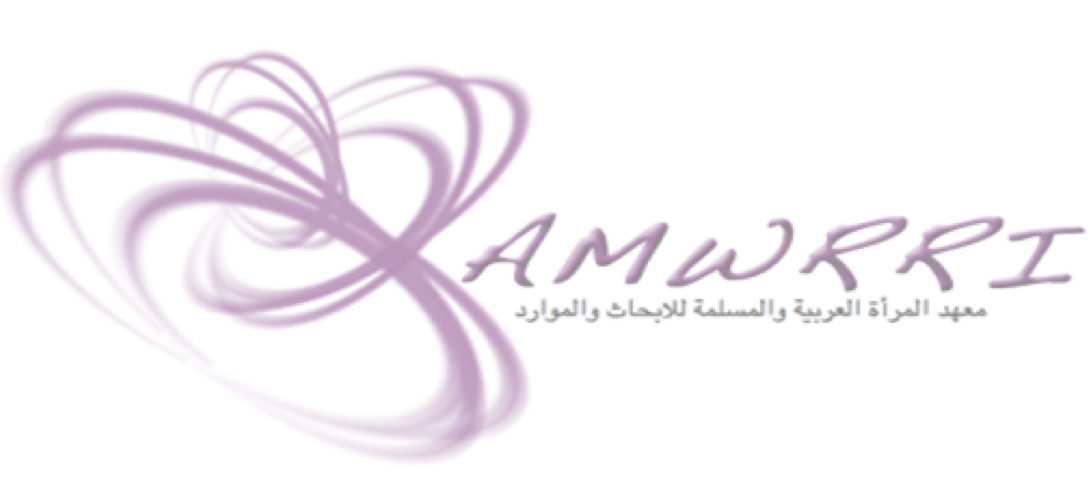Since the establishment of the organization in 2009, AMWRRI uses its research, social, and cultural activities to raise awareness and involve communities. It has been holding public events, workshops and exhibits to raise awareness and combat stereotypes about Arab and Muslim communities. Its activities, including its ongoing oral History research, highlight the diversity of the Arab and Muslim communities in the United States and in the Milwaukee area in particular. It provides knowledge and raises awareness about the diversity of Arabs and Muslim communities. It builds relationships and facilitates important research on immigrants and their subsequent generations from African, Asian, and Middle Eastern backgrounds. It also engages scholars and researchers in practical research that speaks of what communities’ and peoples’ practical needs. Issues of concern are interfaith, interracial, and cross-cultural marriages, advocacy for members with disabilities in Arab and Muslim communities and their families, and human rights and gender equality.
The mission of the Arab and Muslim Women’s Research and Resource Institute (AMWRRI) is twofold. First, our mission is to document and research Arab and Muslim women’s experiences while, simultaneously, promoting an understanding of issues that impact Arab and Muslim women in the United States and abroad. Secondly, the organization dedicates itself to increasing social and educational advancement for all generations of Arab and Muslim women, especially in the Greater Milwaukee region.
AMWRRI was founded in 2009 in Milwaukee in response to the pressing need for documenting and conducting research on Arab and Muslim women’s experiences. AMWRRI seeks to promote the understanding of issues that impact Arab and Muslim women in the U.S. and abroad. It aims to expand public knowledge about Muslim communities beyond stereotypes, and give women from these communities an opportunity to voice their experiences with the immigration and settlement process in greater Milwaukee. It works to combat the ever-increasing Islamophobia and bigotry that targets these communities, especially after September 11th.
One of AMWRRI’s objectives is the long term oral history project. Arab and Muslim American women’s experiences are not documented, traced, and known, which makes it difficult to identify the issues that significantly affect these women’s lives and difficult to find the solutions that would enhance their situations. Moreover, scholars, researchers, and students interested in researching the Arab and Muslim community in greater Milwaukee find it difficult to obtain written materials on women’s (and men) histories and experiences. The project documents Arab and Muslim communities’ social histories through oral interviews and surveys, focusing on the experiences of first, second, and third generations of Arab and Muslim women. The organization is committed to ongoing projects and community engagement events that tackle important social and cultural issues in these communities. These projects seek to help increase women’s agency and elevate obstacles Muslim women face in their families, communities and society. Issues of concern are interfaith, interracial, and cross-cultural marriages, advocacy for members with disabilities in Arab and Muslim communities and their families, and human rights and gender equality.
The organization is also dedicated to increasing social and educational advancement for all generations of Arab and Muslim women, especially in the Greater Milwaukee region. By accumulating knowledge of Arabs and Muslims in the area, the information will enable non-profits, academics and other associations to organize their work with the help of this hands-on research. AMWRRI conducts training sessions of students and researchers on proper interview methods which will result in fair engagement with the issues concerning the Arab and Muslim community. This also helps empower women, many of whom are student members of Milwaukee Arab and Muslim communities themselves. They receive professional training on the methods of conducting oral history interviews by experts in the field. Our work is for the public, for archival and academic use, open to everyone. We were established by a group of humanities experts in the Milwaukee area and we continue to work as primarily a tool of acquisition and preservation of human history.
Arab and Muslim American women’s experiences are not documented, traced, and known, which makes it difficult to identify the issues that significantly affect these women’s lives and difficult to find the solutions that would enhance their situations. Moreover, scholars, researchers, and students interested in researching the Arab and Muslim community in greater Milwaukee find it difficult to obtain written materials on women’s histories and experiences. The project documents Arab and Muslim women’s social histories through oral interviews and surveys, focusing on the experiences of first, second, and third generations of Arab and Muslim women.
The organization is also devoted to increasing the social and educational advancement for all generations of Arab and Muslim women and men, most notably in the Greater Milwaukee region. By accumulating knowledge of Arab and Muslim women in the area via hands-on research, non-profits, academics, and other associations will be able to use this information to organize their work. Furthermore, AMWRRI hopes to accredit itself as an organization which can help Arab and Muslim women establish themselves as thriving members of society.
Our oral history interviewers are volunteers and many of them are local university students. They receive professional training on the methods of conducting oral history interviews by experts in the field. Our work is open to the public and dedicated for archival and academic work. We were founded by a group of humanitarian experts in the Milwaukee area. We continue to work primarily as a tool of acquisition and preservation of human history.
